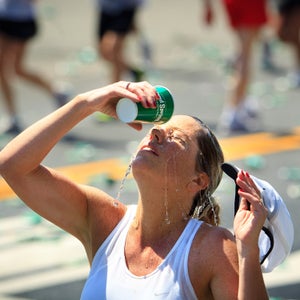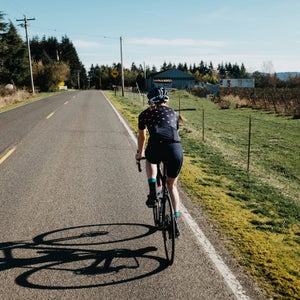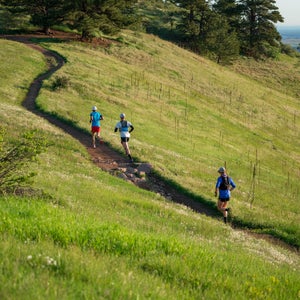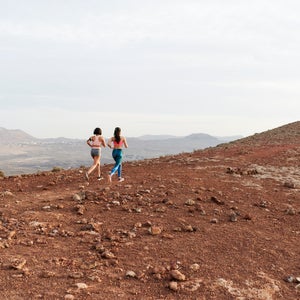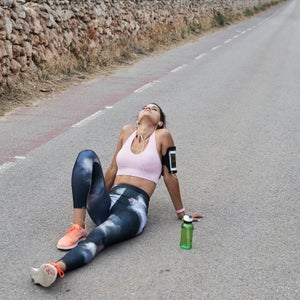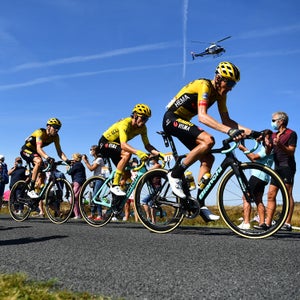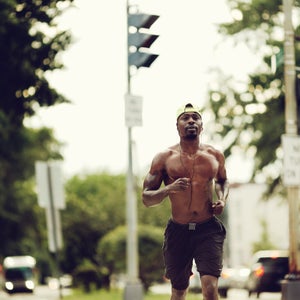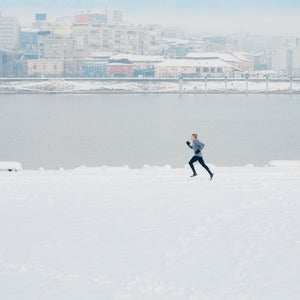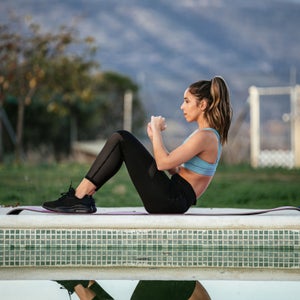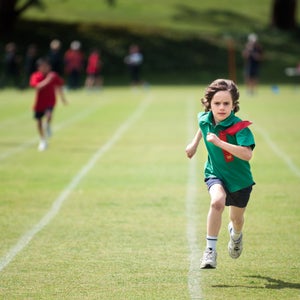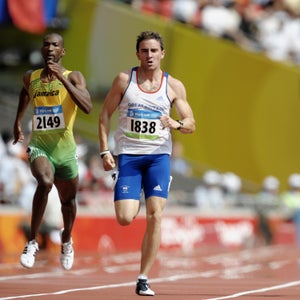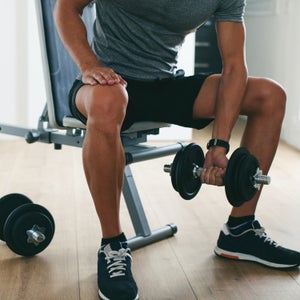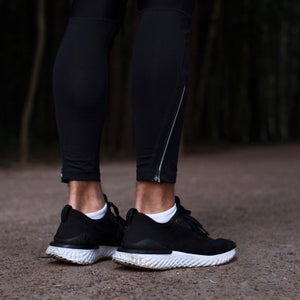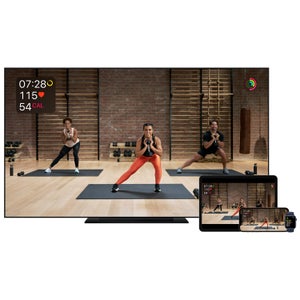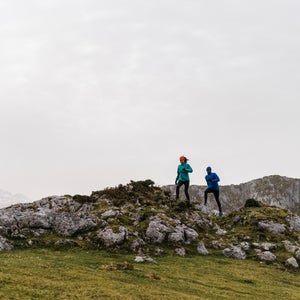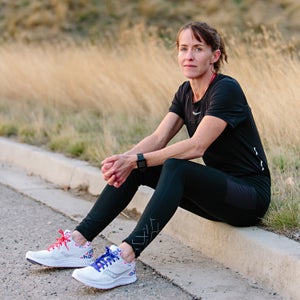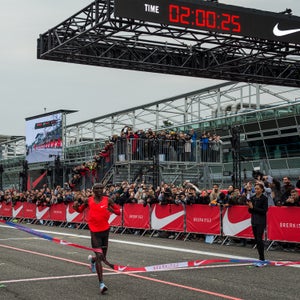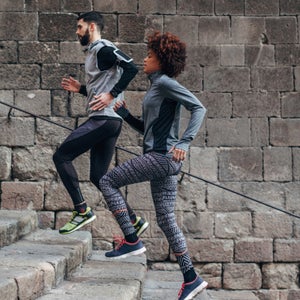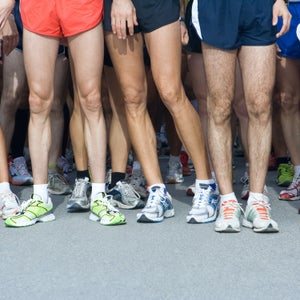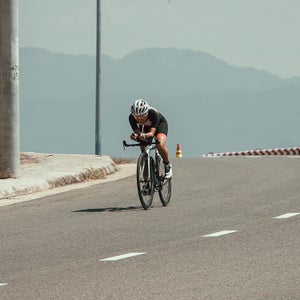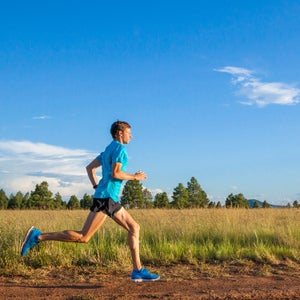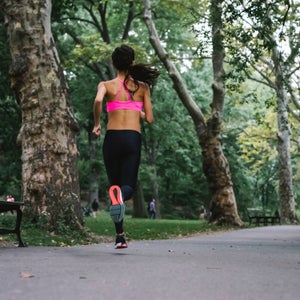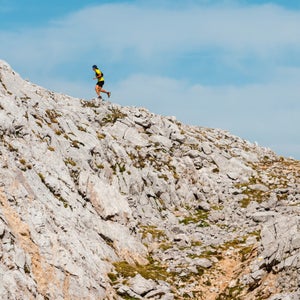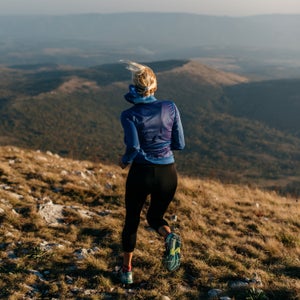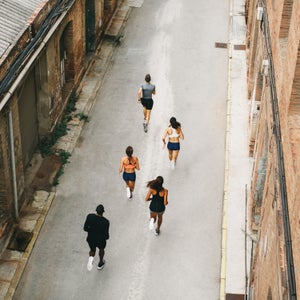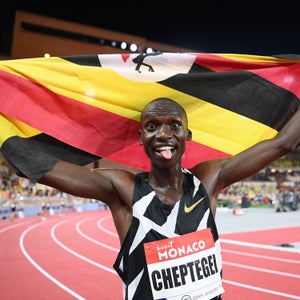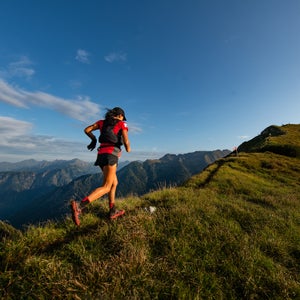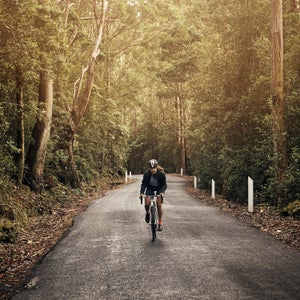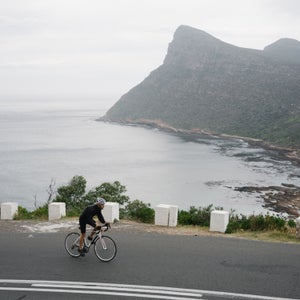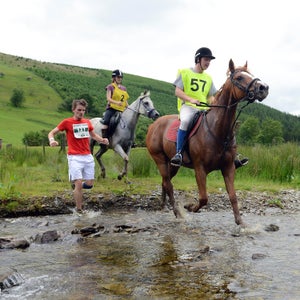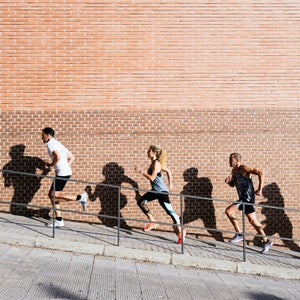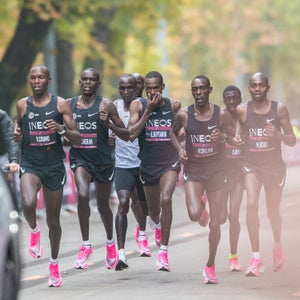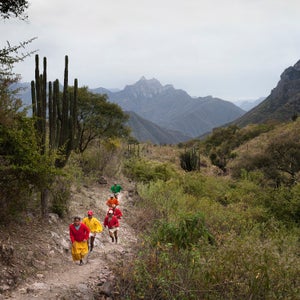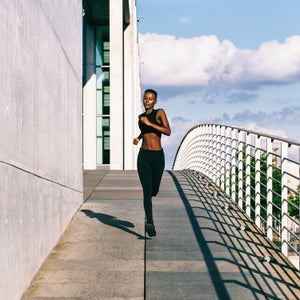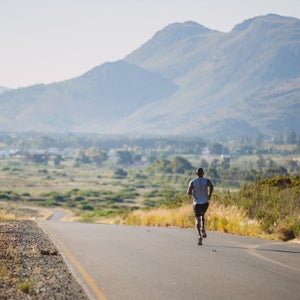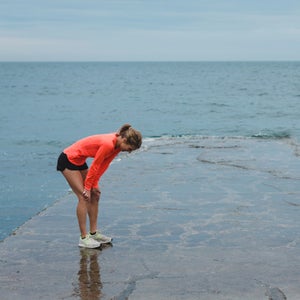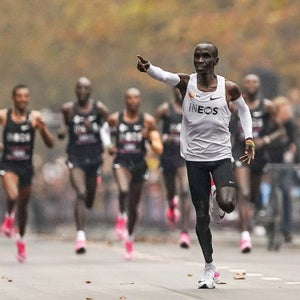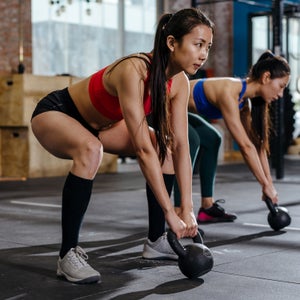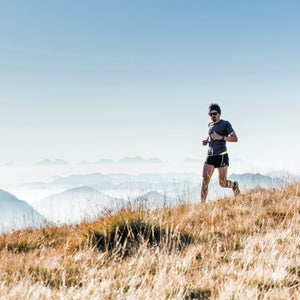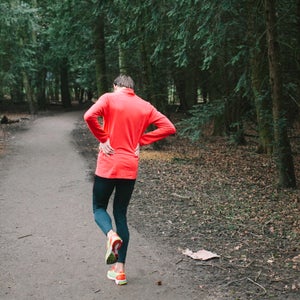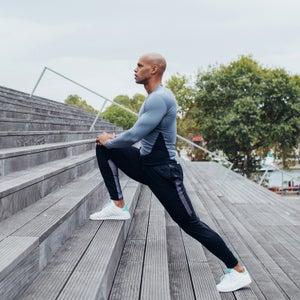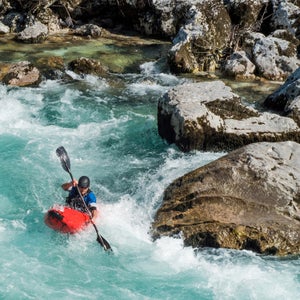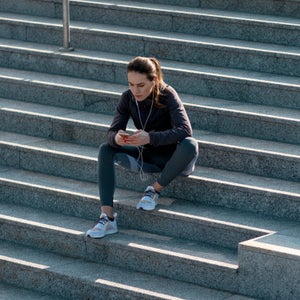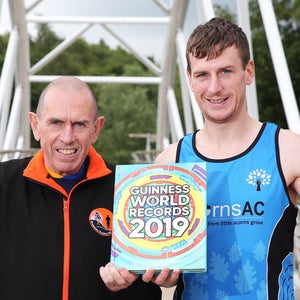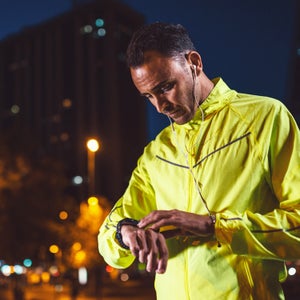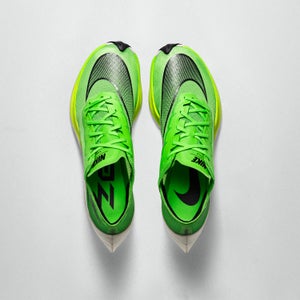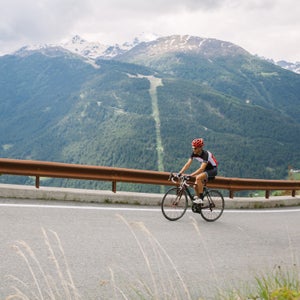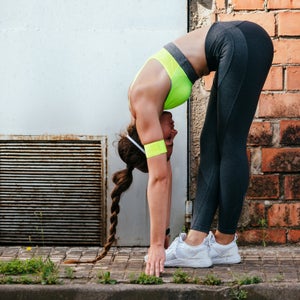

Alex Hutchinson
Alex Hutchinson is a National Magazine Award-winning journalist and Outside’s Sweat Science columnist, covering the latest research on endurance and outdoor sports.
His most recent book is the New York Times bestseller Endure: Mind, Body, and the Curiously Elastic Limits of Human Performance. Before becoming a journalist, he completed a PhD in physics at the University of Cambridge and worked as a researcher in the National Security Agency’s Quantum Computing group. He also competed for the Canadian national team in track, cross-country, road, and mountain running. He lives (and runs) in Toronto.
Published
Researchers are searching for telltale clues in your strength, flexibility, or body position that signal an impending injury. It’s harder than you think.
A new analysis digs into who overheats and which conditions are most risky, with surprising results
Setting high goals is great, but how you deal with falling short determines how long you’re willing to keep chasing them
What separates the best endurance athletes from everyone else isn’t their amazing lab test data or power values—it’s how well they maintain those values after a few hours of exhausting exercise
It’s easy—maybe a bit too easy—to believe that poor sleep leaves you more vulnerable to injury. But researchers aren’t so sure after all.
Maintaining the ability to hit top gear after your twenties is useful even for endurance athletes, and takes specific training
Running alone against the clock is very different from trying to beat other runners, but untangling how our minds process the challenge is “like knitting with spaghetti”
A new review assesses what it takes to maintain endurance and strength when circumstances interfere with your usual training
Changing hormone levels affect your tendons, ligaments, and muscles, and evidence is mounting that this can influence your chances of injury
Mental fatigue has become a hot topic for sports science researchers, but its effects remain controversial
At the 2019 World Championships, researchers gave marathoners and racewalkers swallowable thermometer pills and used thermal cameras to assess the effectiveness of hydration and cooling techniques in the heat of competition
Detailed power data from sprinter Marcel Kittel and climber Tom Dumoulin highlight the contrasting physiological demands faced by different riders
A new study explores how inner monologue varies between sports, situations, and experience levels
Tallying which articles are most frequently cited in later studies reveals the biggest trends in sports science—and some oversights
Unlike heat training, repeated exposure to cold doesn't necessarily help you handle winter weather better
A new study plots the progression of thousands of people following an ultra-minimalist training plan. The results are impressive—at least initially.
Winning races when you’re young may seem like a good predictor of future success, but it’s not perfect
If even pacing is so great, why do the best runners in the world always seem to have another gear at the end?
Two new studies find performance benefits from high levels of the sunshine vitamin, but they're not the final word
A new study tries—and fails—to predict athletic greatness with a DNA test. Thank goodness.
Correctly timing all the elements of your taper can give you an extra edge on race day
Pronation is out of favor, comfort is too vague, but maybe measuring your "habitual motion path" will guide you to a shoe that minimizes your injury risk
Top trail runners mix running and walking on steep terrain, but even scientists aren't sure how we choose which is better
A leading company redefines what it's actually measuring, and explains why that's what we really wanted all along
Check out these titles for fans of science, endurance, fitness, and adventure
The company's library of studio exercise classes, integrated with on-screen fitness data from your Apple Watch, launches today. Our Sweat Science columnist takes it for a spin.
A new study explores the links between exercise and pain perception, and how easily they can be manipulated
A new generation of futuristic at-home workout solutions—including Mirror, Tonal, and Peloton—were gaining steam even before the pandemic
After half a century of confusion, researchers have a new perspective on the transition from "aerobic" to "anaerobic" exercise
When you stop breathing, oxygen flowing to your brain actually increases—at least for a while
A basic principle of training says you get better at the things you do most. So why does cross-training work?
A pro marathoner looking for a sponsor takes a scientific approach to finding the right match
To pick their two-hour marathon team, researchers tested some of the greatest runners on the planet. Now they're revealing what they found.
You don’t need an elaborate workout plan to get the most out of your resistance workout; you just need to tune into how you feel
A new review sifts through the evidence for and against hiking with poles
A new study suggests that slow-twitch runners can handle higher mileage than fast-twitch runners before showing signs of overtraining
Biology suggests that decades of running should invariably blow out your knees. Scientists are trying to understand why that doesn’t happen.
Even compared to athletes from other sports, endurance athletes have a unique relationship with discomfort
A new study asked coaches to rank the most economical runners after watching video footage. It didn't go well.
Experienced runners tend to match their breath and stride patterns, but trying to do it deliberately may backfire
The disruptions of 2020 mean that there’s an unusually large crop of endurance-related books hitting shelves this fall
A new analysis casts doubt on the idea that people are born as "responders" or "non-responders" for training in thin air
Are you planning a canoe trip this summer? Read this helpful advice from our Sweat Science columnist—he takes backcountry efficiency very seriously.
A new study suggests that strength training is more important than electrolytes for preventing cramps
It’s the one training metric virtually all runners track, but running scientists think we can do better
With a little help from technology, Joshua Cheptegei took down the 5,000-meter world record in Monaco last week
After a controversial Australian study's negative findings about low-carb, high-fat diets, scientists made adjustments and ran the study again
Science says the HoverGlide reduces vertical forces by more than 80 percent. But what does it actually feel like?
After an exhaustive search of the literature, researchers conclude that, well, it's complicated
When the going gets tough, which sensation actually slows you down?
The ability to sustain a high rate of energy burn for a prolonged period of time may help ward off cancer
The hotter it is, the closer we come to the ever elusive goal of besting the horse—which supports the evolutionary "born to run" hypothesis
Three new studies explore iron patches, injections, and dose frequency
Sweaty workouts do enhance your endurance, according to a new theory, but it may take longer and function differently than previously thought
A new aerodynamic analysis runs the numbers on exactly where to run when you’re behind someone else
A decade after 'Born to Run' made them famous, anthropologists take another look
A new study uses the training data you upload to sites like Strava to estimate the "critical speed" that determines your race performance
To figure out how your body will respond in hot conditions, consider your “physiological equivalent temperature”
Maybe the debilitating effects of chronic overtraining syndrome are in your muscles after all, not your head or your hormones
Physiologists from around the world share their pet theories and crazy ideas on what it will take to break records
A new study of female athletes sees big strength gains from twice-a-week lifting
Researchers put the four main running power devices through a series of tests and picked a clear winner
They're not more tired than the rest of us, according to a new study—they're just better at sleeping
New research explores why you go slower and feel worse, even though you’re pushing as hard as usual
New research on mental fatigue suggests that even elite runners perform worse after a 45-minute computer task
New research suggests that the lactate produced by hard interval workouts alters the hormones that determine your appetite
So-called "flush drownings" lack an obvious cause like getting trapped underwater. Researchers now believe water temperature is a key factor.
Some sports scientists believe that a measure called the "acute-to-chronic workload ratio" can predict your risk of injury. But critics aren't so sure.
For endurance athletes, new research suggests that different pre-race rituals, or even no warm-up at all, give pretty much the same results
Nobody gets a free pass to sit all day, but new research on how sitting affects your arteries offers some encouraging news for cyclists
Russian women got slower after the Athlete Biological Passport was introduced in 2012. Anti-doping officials think they know why.
New lab data from a record-setting 59-year-old offers insights on how we age—and, potentially, how to avoid it
Recent studies suggest that sunlight may lower blood pressure in ways that have nothing to do with vitamin D
New technology is striving to make it happen
Humans were born to dive, according to some scientists, and that fact helps us thrive at high altitudes
A wilderness medicine expert and former AT thru-hiker shares her tips for tackling a long-distance backpacking trip
Pretty much every elite endurance athlete trains in mountain air or the altitude-tent equivalent. But a few scientists think they're wasting their time and money.
The simple story of an unfair shoe with “springs” doesn’t capture the true complexity of the ongoing debate about technology in footwear
A new study finds unexpected benefits from super-short intervals with even shorter recoveries
Scientists are increasingly skeptical of the benefits of flexibility, but the fitness world doesn’t want to hear it

